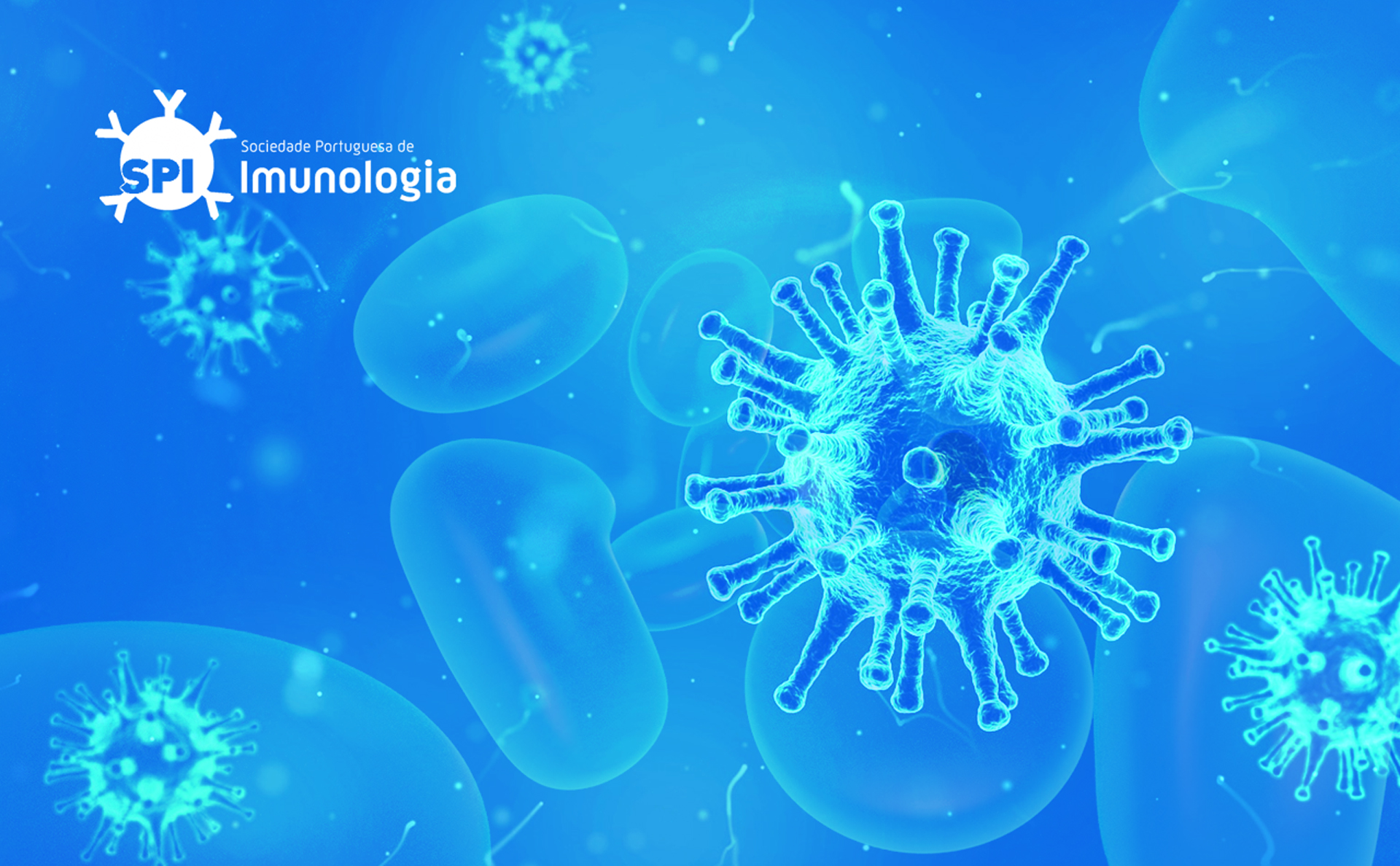School: Online, 18 th October 2024
Joint Meeting: Conímbriga, 19 th October 2024
Report by Paulo Rodrigues-Santos
The 1st Immuno-Oncology SPO-SPI School, organized by the Grupo Português de Imuno-Oncologia (gpI-O), presented a comprehensive program focused on the essential concepts in cancer immunotherapy to around 140 on-line participants. Beginning with foundational insights, Luís Costa from ULS Santa Maria and Ana Maria Figueiredo from ULS Coimbra discussed the basic principles and clinical impact of immunotherapy. Next, Salomé Pinho from i3S (U. Porto) explored glycosylation
as an important mechanism regulating T-cells and their impact on cancer, and Diogo Alpuim Costa from Cascais Hospital discussed how microbiota influences therapeutic outcomes.
The afternoon sessions tackled key challenges in the field. Joana Rodrigues from ULS Coimbra examined strategies to mitigate the toxicity of immunotherapies, while Isabel Dionísio Sousa from ULS São João analyzed mechanisms behind resistance to immune checkpoint inhibitors, a significant obstacle to effective cancer treatment. Helena Florindo from the Faculty of Pharmacy of U. Lisboa shared innovative research on the immune mechanisms involved in targeting cancer cells and the potential of vaccines in cancer prevention and treatment. Paulo Rodrigues-Santos from CIBB/ Faculty of Medicine of U. Coimbra outlined dynamic monitoring strategies to improve treatment precision and patient responses. As gpI-O Coordinator, Rodrigues-Santos concluded the meeting by underscoring the importance of collaboration, including between the national SPI and SPO societies, to advance immuno-oncology research. The event provided valuable insights into both fundamental and clinical aspects of cancer immunotherapy, fostering dialogue among oncologists and immunologists to address current challenges towards improving therapeutic outcomes.

[Andrés Cervantes, Guido Kroemer, Nuno Bonito, Paulo Rodrigues-Santos, Laurence ZItvogel, Heinz Läubli and Markus Maeurer]
The 2nd Immuno-Oncology SPO/SPI Joint Meeting drew nearly 80 (in-person) participants, including leading researchers and clinicians in cancer immunotherapy. This event opened with a session on bridging research and clinical practice, featuring insights from Andrés Cervantes, ESMO President from the University of Valencia, on circulating tumor DNA (ctDNA) and precision oncology. Guido Kroemer from Hôpital Gustave-Roussy discussed the role of acyl-coenzyme A binding protein (ACBP) as a cancer risk factor and its function in inhibiting immunosurveillance, while Heinz Läubli from University Hospital Basel addressed the translation of new cancer immunotherapies into clinical practice. The afternoon session, "Exploring Frontiers in Cancer Immunotherapy," hosted by Paulo Rodrigues- Santos and Cervantes, showcased pioneering research. Laurence Zitvogel from Gustave Roussy explored gut microbiota-related biomarkers in immuno-oncology, and Markus Maeurer from the Champalimaud Foundation shared advances in immunotherapy and immunosurgery. Nuno Bonito, SPO President-Elect from IPO-Coimbra, presented an update of the clinical impact of cancer immunotherapy. The day culminated in a round table, moderated by Bonito and Rodrigues-Santos, that gathered Cervantes, Kroemer, Läubli, Zitvogel and Maeurer to discuss future collaborations in immunotherapy.
In one of highlights of the meeting, Professor Laurence Zitvogel was presented with the European Federation of Immunological Societies/Immunology Letters (EFIS-IL) Lecture Award as a recognition of her extensive contributions to cancer immunology research. With over twenty-five years of dedication as a clinical oncologist and tumor immunologist, Professor Zitvogel is celebrated globally for pioneering discoveries, namely on the role of the microbiota in cancer and immunotherapy. Her work is an outstanding example bridging basic, translational and clinical research to drive innovative treatments for cancer.

[Salomé Pinho, Laurence ZItvogel and Paulo Rodrigues-Santos]












